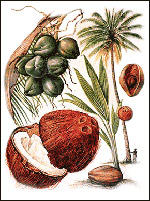Time and date
CONSTRUCTION DIRECTORY
Tropical Oils Europe Ltd Contact Details
Address
Unit 1 Block 1
Broomhall Enterprise Park
Broomhall Enterprise Park
Rathnew
County Wicklow
Ireland
About Tropical Oils Europe Ltd
Water Treatment
The German bacteriologist Robert Koch, in the 1880s, proved that the pathogens responsible for cholera were entering rivers and, therefore, water systems via the faeces of infected people. By 1904, Sir Alexander Houston showed that chlorine in water destroyed the typhoid bacillus. This discovery had an enormous effect on disease control worldwide.
Typhoid and cholera, once major killers of humanity, now became much rarer in the western world. In the United States, Jersey City became the first city to treat its water supply with chlorine in 1909. Most of the major cities in the USA had followed its example by 1914. Most of western Europe gradually introduced chlorination also from 1918.
This running water on demand that we take so much for granted has to be treated to quite a considerable extent before it pours out of our taps. The main purpose of water treatment is to protect the consumer from diseases caused by pathogenic (disease causing) bacteria such as those mentioned above and from parasites. Dirt and sediment have to be removed along with discolouration. Unwanted chemicals, metals and foul tastes and odours must be taken out also.
Surface water from rivers and lakes can require more treatment than groundwater from wells. The raw or untreated incoming water to a treatment plant goes through coarse screens to remove leaves, twigs, eels, fish and sundry bits and pieces. The water can then go through raw water pumps either to storage or on through fine screens and microstrainers.
At this stage, if the water comes from a really dirty supply, it may require aeration, pre-chlorination and time in pre-settling tanks before proceeding to the processes of coagulation and flocculation. In the process of coagulation, chemicals such as aluminium sulphate or ferric sulphate are added to the water to neutralise tiny electric charges of the suspended particles which helps them form larger ?lumps? or agglomerations of fine material. Sometimes deep v shaped hoppers or tanks are used with the water rising from the bottom.
The flocculation takes place in what looks like a blanket of cotton wool one metre from the surface of the tanks. The rising water and its particles move upwards through this blanket and the agglomerations of material are trapped. This entrapping of natural colours, very fine particulate matter and mineral particles not only clarifies the water but results in much lower counts of parasites, pathogenic bacteria and viruses.
Aluminium sulphate can pose problems. It is highly unstable and can easily change state. This can be caused by a simple change in air pressure. Aluminium sulphate is toxic and most of it is supposed to be removed by further treatment but this is not very successful.
It is difficult to operate coagulation and flocculation correctly as the design of the system has to be perfect, the chemical dosage very accurate and the pH (acid/alkaline balance) absolutely right. Lime often has to be added to adjust the pH to a suitable level.
Following flocculation, the water can go to sediment tanks to let the sediment settle out and then to rapid sand filters for further cleaning of the water. These processes will not remove viruses, parasites and bacteria so the water is now disinfected using chlorine. This can give tap water its swimming pool or medicine taste. Whilst chlorine will kill all bacteria and viruses, it will not kill some parasites such as cryptosporidium. Hence the danger of this parasite to drinking water supplies.
The degree to which chlorine does its job well depends on how efficiently the previous processes have worked. Chlorine is normally injected into the water in a gaseous form. It is a very reactive chemical and its ability as a disinfectant can be limited by organic matter and easily oxidisable compounds in the water. After being mixed with chlorine, the water is left for a short time before being pumped down the mains. A residual amount of chlorine is left in the water to protect against further infection.
These processes of drinking water treatment result in large quantities of sludge being created. It is much better to have a sludge disposal problem, however, than outbreaks of dysentery or cholera!
The German bacteriologist Robert Koch, in the 1880s, proved that the pathogens responsible for cholera were entering rivers and, therefore, water systems via the faeces of infected people. By 1904, Sir Alexander Houston showed that chlorine in water destroyed the typhoid bacillus. This discovery had an enormous effect on disease control worldwide.
Typhoid and cholera, once major killers of humanity, now became much rarer in the western world. In the United States, Jersey City became the first city to treat its water supply with chlorine in 1909. Most of the major cities in the USA had followed its example by 1914. Most of western Europe gradually introduced chlorination also from 1918.
This running water on demand that we take so much for granted has to be treated to quite a considerable extent before it pours out of our taps. The main purpose of water treatment is to protect the consumer from diseases caused by pathogenic (disease causing) bacteria such as those mentioned above and from parasites. Dirt and sediment have to be removed along with discolouration. Unwanted chemicals, metals and foul tastes and odours must be taken out also.
Surface water from rivers and lakes can require more treatment than groundwater from wells. The raw or untreated incoming water to a treatment plant goes through coarse screens to remove leaves, twigs, eels, fish and sundry bits and pieces. The water can then go through raw water pumps either to storage or on through fine screens and microstrainers.
At this stage, if the water comes from a really dirty supply, it may require aeration, pre-chlorination and time in pre-settling tanks before proceeding to the processes of coagulation and flocculation. In the process of coagulation, chemicals such as aluminium sulphate or ferric sulphate are added to the water to neutralise tiny electric charges of the suspended particles which helps them form larger ?lumps? or agglomerations of fine material. Sometimes deep v shaped hoppers or tanks are used with the water rising from the bottom.
The flocculation takes place in what looks like a blanket of cotton wool one metre from the surface of the tanks. The rising water and its particles move upwards through this blanket and the agglomerations of material are trapped. This entrapping of natural colours, very fine particulate matter and mineral particles not only clarifies the water but results in much lower counts of parasites, pathogenic bacteria and viruses.
Aluminium sulphate can pose problems. It is highly unstable and can easily change state. This can be caused by a simple change in air pressure. Aluminium sulphate is toxic and most of it is supposed to be removed by further treatment but this is not very successful.
It is difficult to operate coagulation and flocculation correctly as the design of the system has to be perfect, the chemical dosage very accurate and the pH (acid/alkaline balance) absolutely right. Lime often has to be added to adjust the pH to a suitable level.
Following flocculation, the water can go to sediment tanks to let the sediment settle out and then to rapid sand filters for further cleaning of the water. These processes will not remove viruses, parasites and bacteria so the water is now disinfected using chlorine. This can give tap water its swimming pool or medicine taste. Whilst chlorine will kill all bacteria and viruses, it will not kill some parasites such as cryptosporidium. Hence the danger of this parasite to drinking water supplies.
The degree to which chlorine does its job well depends on how efficiently the previous processes have worked. Chlorine is normally injected into the water in a gaseous form. It is a very reactive chemical and its ability as a disinfectant can be limited by organic matter and easily oxidisable compounds in the water. After being mixed with chlorine, the water is left for a short time before being pumped down the mains. A residual amount of chlorine is left in the water to protect against further infection.
These processes of drinking water treatment result in large quantities of sludge being created. It is much better to have a sludge disposal problem, however, than outbreaks of dysentery or cholera!
Reviews & Testimonials for Tropical Oils Europe Ltd

February 27, 2012
hi John the website for the Beta Glucan is Transfer Point or A.J. Lanigan. It would be great not to have to send to America for it!!!. The yeast one is the best, you dont need the oat one for cholesterol, the yeast one does it fine, as well as all the other stuff. Lots of love Letty
Review
by
Letty

















